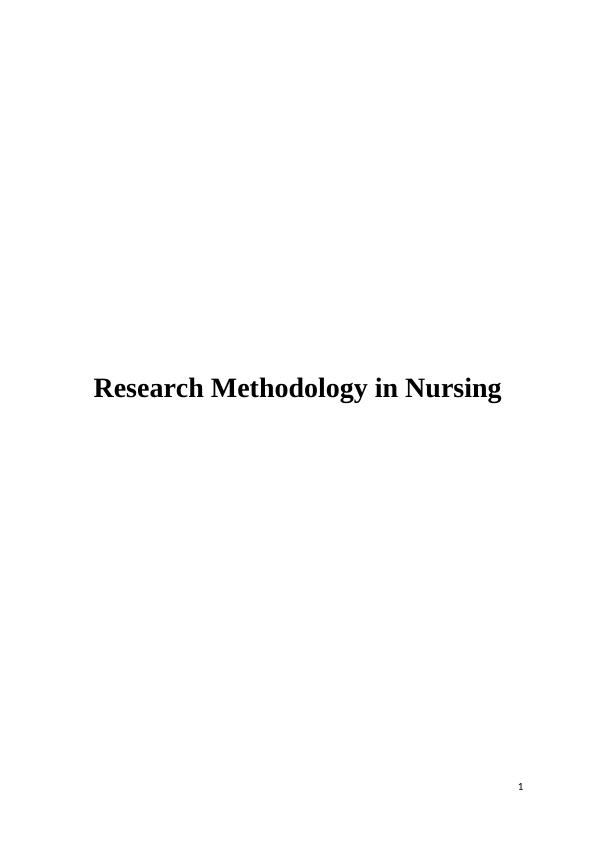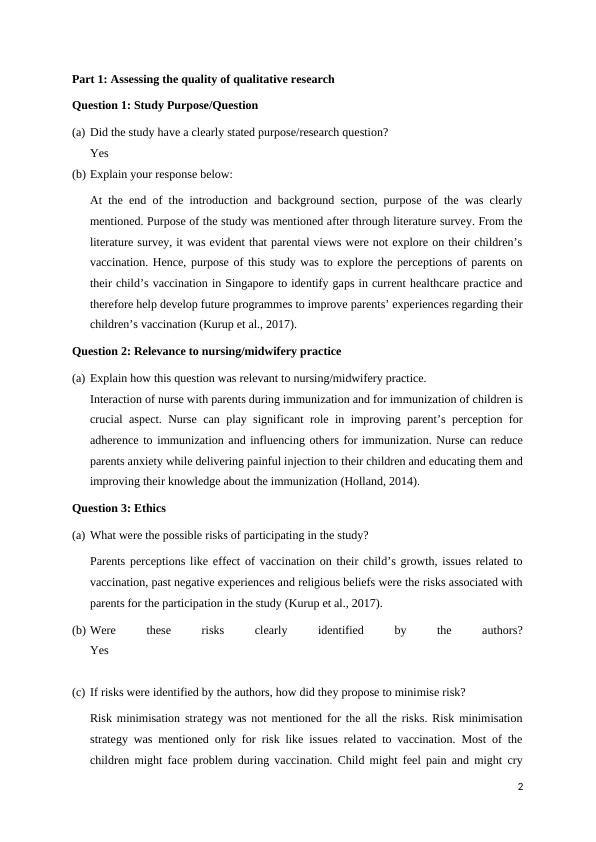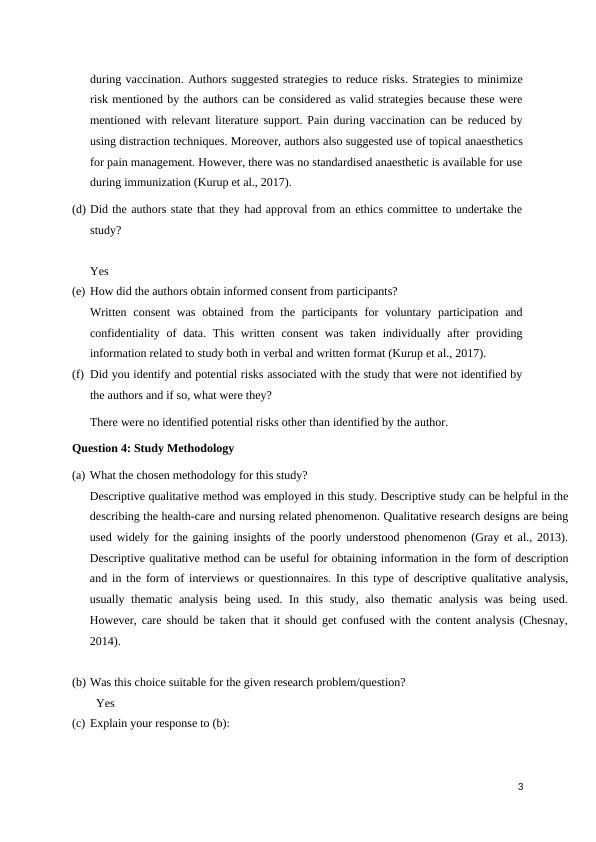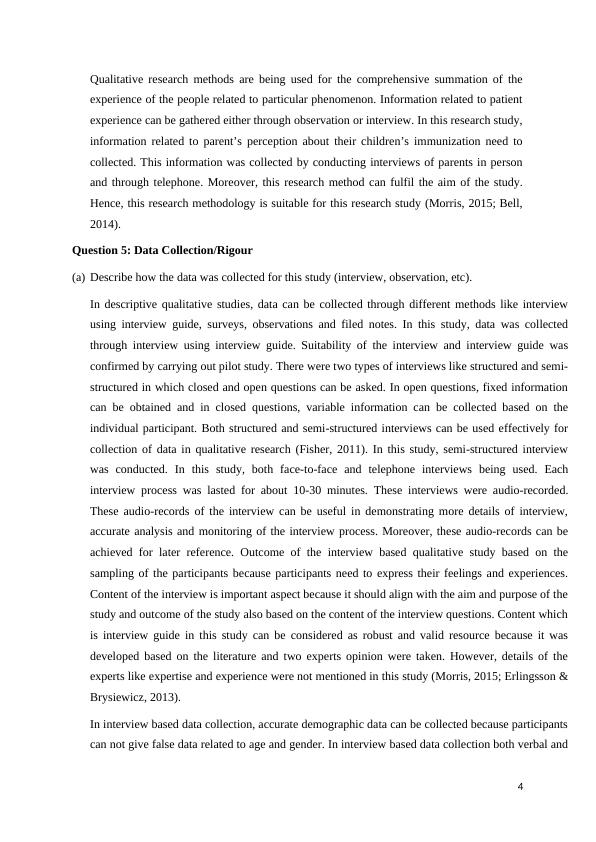Assessing the Quality of Qualitative Research in Nursing: A Study on Parental Perceptions of Child Vaccination in Singapore
Assessing the quality of quantitative or qualitative research on the reasons for suboptimal uptake of immunisation in children and strategies to improve it.
13 Pages3986 Words338 Views
Added on 2023-06-11
About This Document
This study assesses the quality of qualitative research in nursing by exploring parental perceptions of child vaccination in Singapore. The study examines the relevance of the research question to nursing practice, ethical considerations, methodology, data collection, participants, research findings, study limitations, and applicability to clinical practice.
Assessing the Quality of Qualitative Research in Nursing: A Study on Parental Perceptions of Child Vaccination in Singapore
Assessing the quality of quantitative or qualitative research on the reasons for suboptimal uptake of immunisation in children and strategies to improve it.
Added on 2023-06-11
ShareRelated Documents
End of preview
Want to access all the pages? Upload your documents or become a member.
Assessing the Quality of Qualitative Research in Nursing: A Study on Parental Perceptions of Child Vaccination in Singapore
|13
|4216
|371
Tool for critiquing QUALITATIVE research
|7
|3731
|59
Nursing Research Appraisal Assignment
|15
|3702
|46
Tool for Critiquing Qualitative Research
|11
|4223
|66
Tool for Critiquing Quantitative Research
|8
|2734
|95
Tool for Critiquing Qualitative Research
|10
|4695
|13




